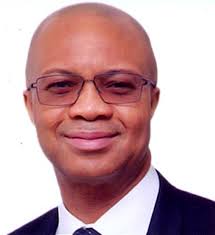The Ministry of Budget and National Planning has expressed some concerns about the nation’s revenue situation, saying that there is the urgent need to improve the efficiency of revenue collection to avert plunging the country into debt trap.
The Director of Budget in the Ministry, Ben Akabueze, who raised the concern on Wednesday disclosed, for instance, that the Nigerian National Petroleum Corporation (NNPC) had been subsidising every litre of Premium Motor Spirit (petrol), consumed in the country by N53.
Akabueze, while giving these hints in response to questions from participants at the Strategic Dialogues on the Morocco-Nigeria Relations in Abuja, pointed out that the subsidy payments or what NNPC classifies as ‘under-recovery’ was not desirable for the nation’s fiscal system.
To reverse the ugly trend and beef up the nation’s revenue volume, the Director General canvassed the need to diversify the economy as a fiscal imperative.
He explained: “For us in Nigeria, lately there has been a lot of talk about government’s borrowings and those who talk about it are justified to express the concern. But the truth is that I think we are generally having the wrong discussion. I personally don’t think we have a debt problem, but we have a serious revenue problem, which, if we do not address, will snowball into a debt problem.
“But instead of having a discussion around the revenue issue, we are talking about the debt. Morocco, for instance, has a 63 per cent debt to GDP ratio; we have a 20 per cent debt to GDP ratio. Morocco has over 3.4 per cent deficit to the GDP ratio; we have a statutory cap of three per cent.”
“The real issue is that in 2017, for instance, our debt service to revenue ratio crossed 60 per cent. There are two options of a policy standpoint in trying to address the numerator, which is debt, at a time when you have huge infrastructure deficit that needs to be addressed.
“And this is also at a time when the economy remains pretty fragile and, therefore, government spending is critical to sustain and drive growth. Therefore, focusing on the numerator in times like this may not be the solution. This is why revenue is what we need to focus on”, the DG Budget added.
On the issue of crude oil price, the budget expert noted despite the rise in the cost of crude, there had been no corresponding growth in Nigeria’s revenue due to the fact that the country was spending more to import virtually all the refined products from crude oil.
He clarified further: “On oil price, for us it is a double-edged sword unfortunately. This ought to be a season where we should be clicking glasses with regards to the oil price. But right now, practically every drop of refined petroleum product that we consume in the country is imported.
“And the one single factor that determines the price of refined product is the price of crude. In essence, while we export the crude at about $80 (per barrel), we effectively import back the same crude at about $100 importation price for refined products. And that explains why despite the strong oil prices, we are not seeing a corresponding growth in government revenue”, Akabueze added.






